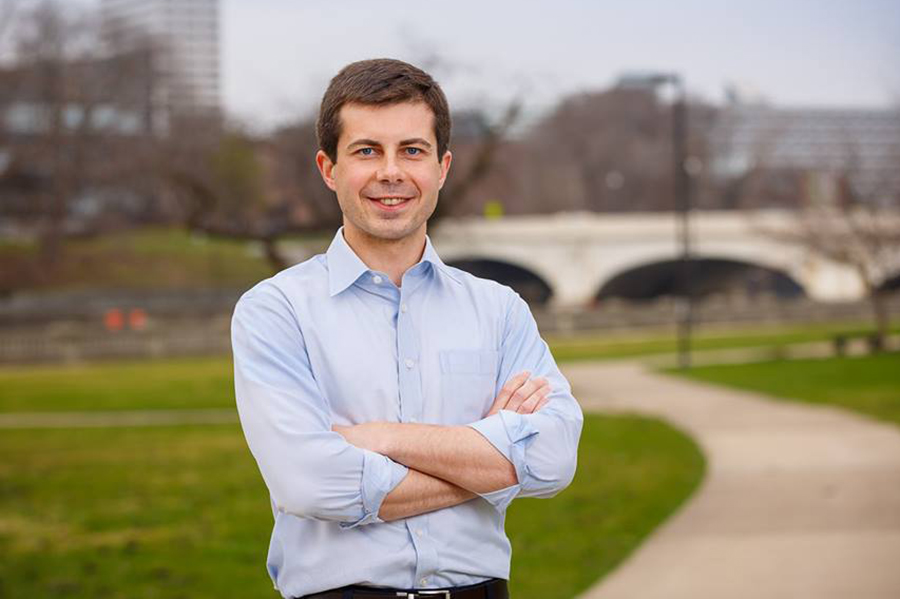Not many mayors make national headlines, and those who do often do for the wrong reasons, as Philadelphia residents who remember Wilson Goode will attest. Pete Buttigieg has so far not been one whose national headlines have been unfortunate.
Buttigieg, 37, spoke on Feb. 19 at the Free Library in Philadelphia, ostensibly to promote his new book, “Shortest Way Home.” However, the crowd that packed the Free Library’s almost-400 seat auditorium didn’t come to see the young Democratic mayor of modest South Bend, Ind. They came to see the country’s first openly gay Democratic candidate for President of the United States.
When he was questioned onstage by a reporter, the focus was not on his book, the presumed reason for his visit. Instead, questions centered primarily on presidential issues, as well as Buttigieg’s life as an openly gay man in politics.
When asked why he wanted to run for president, Buttigieg answered with typical midwestern forthrightness and humor. “Well, don’t run for office just because you want it. And a lot of people do that—just look at the current occupant of the White House. You have to have a clear idea of what it is you want to accomplish, what has to be done.”
He explained why he decided to run at such an early point in his career. “We all have to decide when your moment in life is, when it’s time to make the big decisions. Some people wait too long, some don’t wait long enough. I just looked at where things were going, and I thought now seems like it could be my moment.”
Buttigieg is not the first openly gay presidential candidate for a major political party. In 2012, Fred S. Karger ran unsuccessfully for the Republican nomination.
Buttigieg (who likes to be called “Mayor Pete”) came out late in his first term as mayor. It was a politically risky step in relatively conservative South Bend, especially since virulently anti-gay Mike Pence was governor of Indiana at the time. “I came out because I had to,” he said flatly. He added, jokingly, “Straight people don’t have to come out, and I think it’s a little unfair that gay people have to. But we do.”
“I came out in an editorial—well, because I like to write. Also, I didn’t want to do it meekly, like going to some public function with a dude on my arm as my date. I chose brutal honesty.”
Buttigieg admitted that the coming out process was nerve-wracking, as it is for most people. “It was spooky waiting for the response,” he said. “My palms were sweating—me, a grown man. But the response, when it came, was amazing. And I got re-elected with 80% of the vote.”
Buttigieg ended the session by taking questions from the audience. The atmosphere quickly evolved into one resembling a town hall meeting. Even when pressed, Mayor Pete did not indulge in much anti-Trump rhetoric, focusing his thoughtful responses on the future.
“We need to talk about a world that leaves behind people like Trump.”
Buttigieg is beginning his campaign when the Democratic field is growing increasingly crowded. Perhaps the response of a largely Democratic Philadelphia crowd might say something about his odds.
He got a standing ovation.
